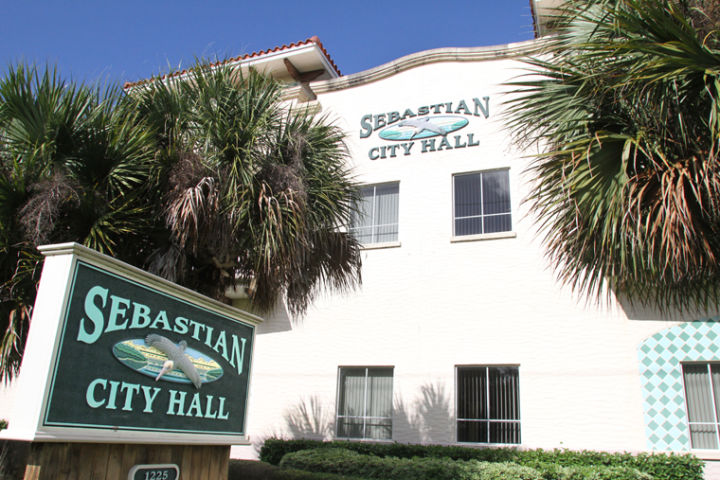
SEBASTIAN — “How can you know how much is too much – or too little – to have in the City’s cash reserve?” was the question addressed by City Finance Director Ken Kilgore in a presentation at the May 19 meeting of the Budget Review Advisory Board.
After considering the data in Kilgore’s detailed report, board members agreed to review the document further during the next month or two. After that, the group said it might recommend the Sebastian City Council increase the designated cash reserve amount from the current 30 percent of operating expenditures to 40- or even 50 percent.
The City’s reserve fund now stands at a little more than $5 million.
After listening to numerous questions, lots of discussion and divergent opinions on the subject, Kilgore crafted the presentation, specific to Sebastian, covering possible scenarios in which the City would need to draw on its reserve fund.
He explained that the Government Finance Officers Association recommends two months’ operating expenses equivalent, which, in Sebastian’s case, would currently be about $1.6 million.
The City’s policy, however, is 30 percent – or about $3 million – well below the City’s current reserve balance.
Kilgore asked the board if the $5 million is too much, given that it is $2 million more than the City’s policy calls for.
He then proceeded to present data that had led him to the conclusion that, for Sebastian and its particular circumstances, $5 million is not unreasonable.
To quantify the “correct” amount, using a hurricane hit as the most likely disaster for which reserve funds would be required, Kilgore looked at presumed rate of damage, the likelihood of storms at various times of year, assumptions on revenue and expenditures and the consideration of whether to use all the resources, as necessary, for one event, or to plan for a second event in the same budget year.
By researching the data in each of the categories, including data from Sebastian’s experiences with Hurricanes Frances and Jeanne, Kilgore made the following key observations:
Events in October to December would be most detrimental to the budget – the loss of structures and therefore, taxes would result in reduced tax values the very next fiscal year;
Depletion of cash reserves is primarily due to revenue losses, as most expenditures would be recovered over time;
Depletion of cash reserves would happen over several years, allowing mitigating actions, such as deferred maintenance, vacancies by employee attrition, emergency loans, special millage increases or fee surcharges.
The current $5 million cash reserve level, he concluded, is reasonable to handle immediate cash needs but a program of some sort would be needed to restore that level before the next event.
Following Kilgore’s presentation members of the Budget Review Advisory Board said they plan to study it further individually and, at the June 2, board meeting continue the discussion. If need be, they would meet again and come up with a recommendation to the Sebastian City Council regarding the City’s reserve fund policy.



